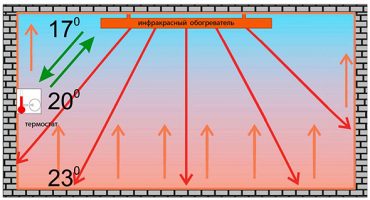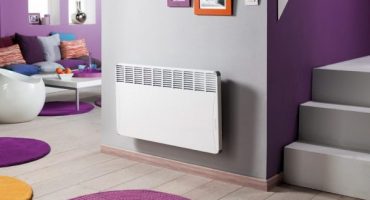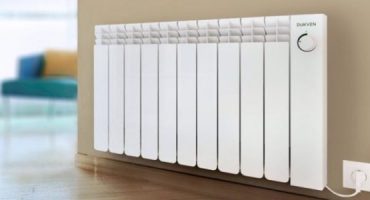When the question arises of organizing heating in the house on cool days, many do not know how to answer it. Is it possible to do this with a convector or radiator? Both types of heaters are capable of stunningly efficient heating of indoor air and create a cozy atmosphere of warmth and joy. But before making the final choice, it is necessary to consider in detail the way they work and the features of operation.
Oil Cooler Features

Oil radiator
This heater, in essence, is a sealed container that is filled with mineral oil. The heating of such a device is carried out by a heating element. The metal body, which has ribbing, allows you to give off heat as much as possible, and also makes the conditions for the formation of air flows, because the radiator radiates a portion of thermal energy by convection.
The device has a temperature mode controller, and the radiator is powered from a household outlet.
There are models from 1 kW to 2.5 kW power. The maximum area that one such radiator is able to heat is 25 m2. For large spaces, two units or more are used. The radiator efficiency is as much as 96%.
At the head when choosing this type of device is the functionality of the models.
The oil heater equipment may include:
- A special casing on the case that protects consumers from burns.
- A fan that allows heated air to fill the space faster.
- A rollover sensor that turns off the power to the radiator when it is tilted or even dropped.
- A timer that controls the start and end times of a heater.
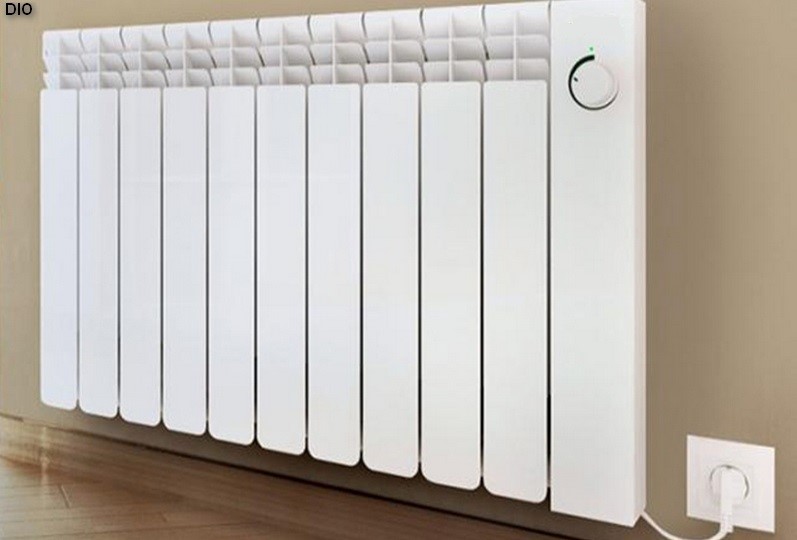
Wall mounted oil cooler
Radiators are manufactured in the following configurations:
- floor;
- tabletop;
- wall mounted.
The first models on the list are equipped with a special handle and small wheels for easy transportation around the house.
Technical parameters of convectors
This device is a compact case, equipped with holes at the top and bottom. His work consists of moving cold air through a built-in spiral heater, which is already heated through the ventilation holes rises to the ceiling. The range of operating powers varies from 500 to 2500 W, and the efficiency reaches 98%.
Based on the placement of convectors are:
- outdoor;
- wall mounted;
- baseboards.
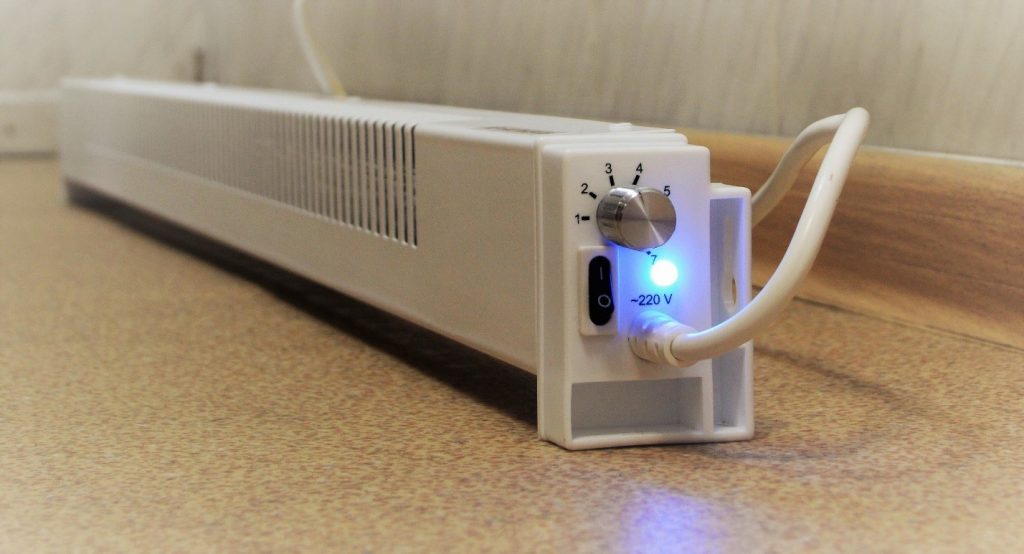
Skirting Convector
Each of them is equipped with a thermostat, which allows you to accurately control the air temperature in the room.
Compare convector and oil cooler
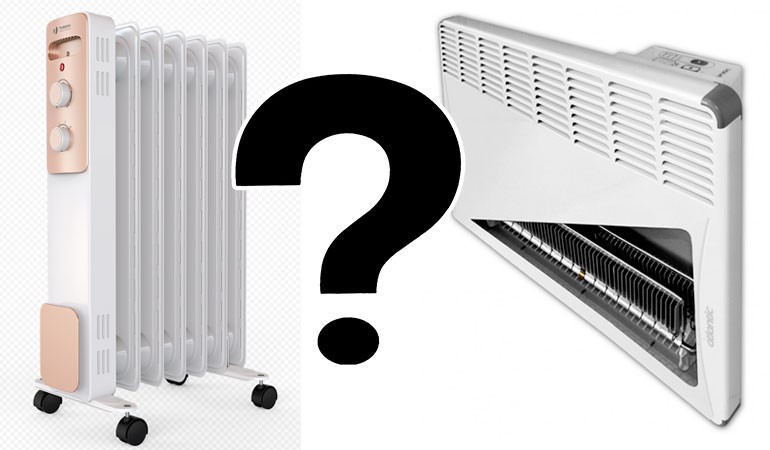
What is better convector or oil cooler?
For a better choice of heater, one can not do without comparing various criteria, starting with ease of use and economical operation.
Comfort
Both types of heaters work without noise and do not emit fetid smells during heating. Some designs are equipped with a programmed mode of operation, installation of the start of start-up and shutdown.
Importantly, the heat in the process of air dispersion is exchanged unevenly - the difference in the heating of air near the floor and at the highest point of the room can be 10 ° С. Also, a convector heater in dusty rooms will drive particles of sand and other debris throughout the space, which is unpleasant.
Cost-effectiveness
Before you opt for oil heater or convector, it should be remembered that the first option has such a feature as thermal inertia. It takes a certain time to raise and lower the temperature of the thermal carrier.
Ultimately:
- The heating of the medium begins after a certain period after the start of the heating unit.
- The device retains heat transfer for a rather long time after shutdown.
- As a result, the radiator consumes energy from the network by a quarter more compared to a convector.
But at the same time, the radiator is capable of supporting higher than the convector indicators of air heat.
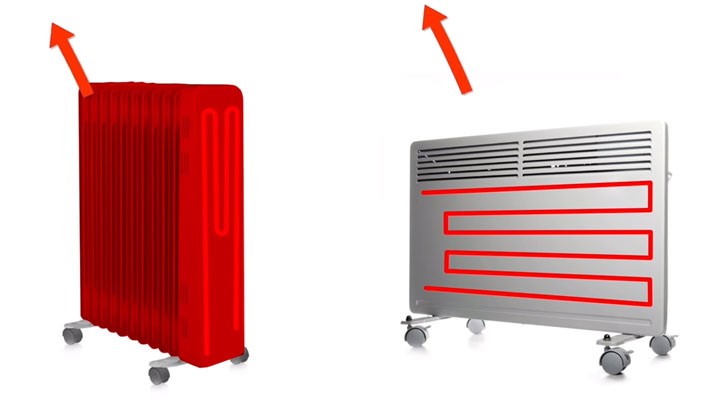
The radiator heats the room faster
The convector, of course, is more reasonable in economy and its term of operation is calculated on longer term which is estimated in two decades. While microcracks may appear on the case of oil heaters, as a result of which leaks appear and the service life is not more than ten years.
Compactness
Oil radiators and converters are designed in floor and wall versions, but the dimensions of the second are usually smaller. When choosing a portable heater for short-term use, the weight of the product is important. Convectors are usually two times lighter and can easily be moved around rooms.
Safety
Heaters of the middle price category are equipped with stabilizers of electricity, which protects the device from voltage surges. There are sensors that prevent overheating of the device, turning off the device in critical situations.
Radiators of cheap categories are not equipped with any protection, therefore they are used only with constant monitoring.
The convector surface heats up to approximately 60 ° C, and therefore it is almost impossible to get a burn. At the same time, the body of the metal radiator can heat up to 85 ° C, and the possibility of injury is quite high if there is no protective casing. This is very true if there are children in the house.
Environmental friendliness
By such an important criterion, heaters are equally safe for the health of consumers. The dust settling to the surface is not exposed to high temperatures. Volatile poisonous inorganic compounds contained in paints and varnishes that cover the surface of the device do not stand out when heated.
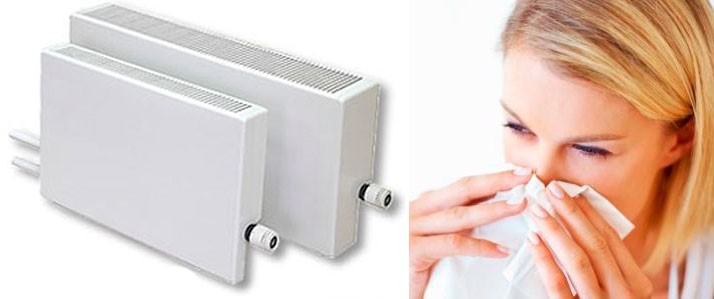
Convectors can raise dust, causing allergies
Oil radiators differ only in that they lower organic and inorganic microparticles into the air to a lesser extent, as they are characterized by low convection rates.
Large area heating
To raise the air temperature in a large room, it will be necessary to use several oil radiators, each of which will require a separate electricity outlet.
The ability to combine convectors in one heating system is an indisputable plus of these heaters. The device network is equipped with a rheostat, thereby reducing electricity consumption.
Cost and Durability
Convectors have a service life of twenty to twenty-five years. These are reliable devices that are most often subject to repair. Oil radiators for several years of operation (up to 10 years) are able to leak due to microcracks in the housing. After such a breakdown, they cannot be restored, and there is a need to purchase new devices.
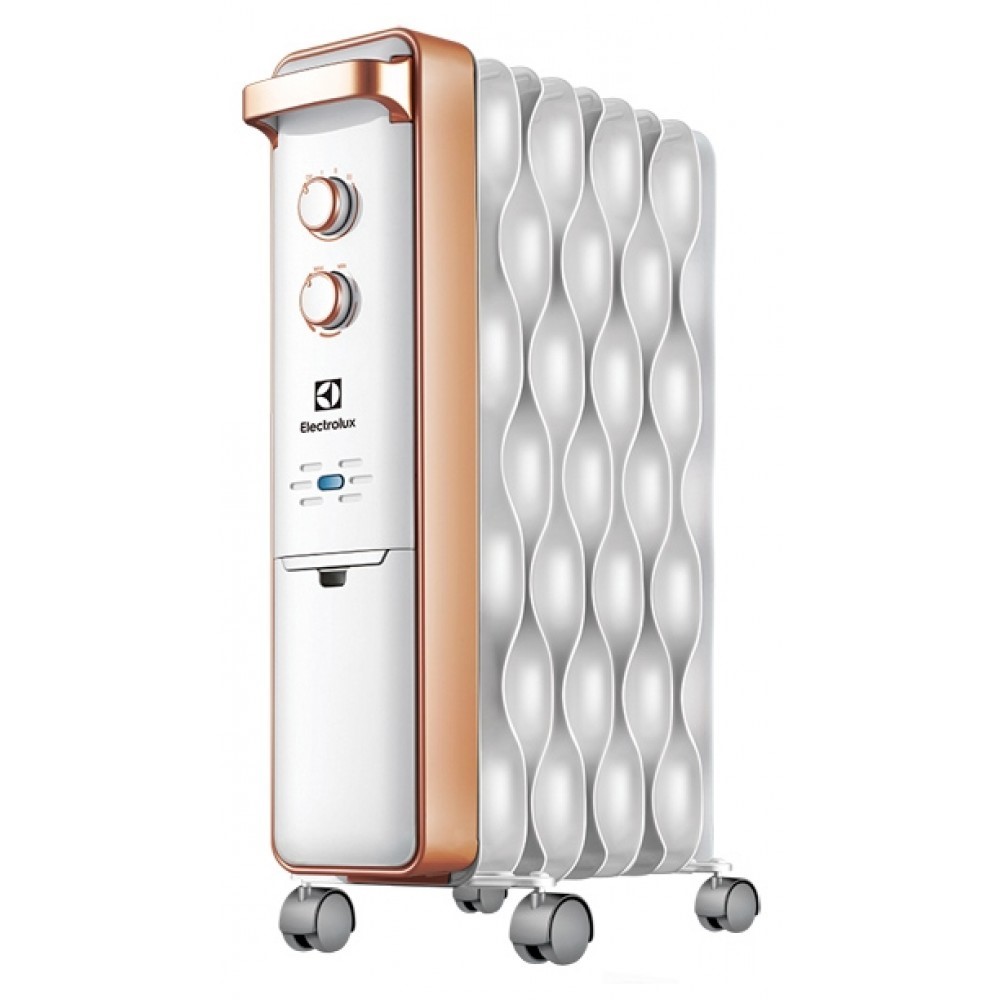
Electrolux Oil Cooler
The price of units depends on the brand and performance of a particular device. On average, oil heaters are cheaper if you take in comparison the similar power and functionality. Well-known brands have a high cost, and cheap analogues, most likely, will not last long.
In the absence of the ability to heat the house, cottage, apartment with a solid fuel or gas boiler, consumers install mobile electric heaters. When choosing a device, it is necessary to take into account the efficiency of the unit with similar energy costs.Knowing the features of each type, you can purchase a device that will satisfy all the needs of the owner.
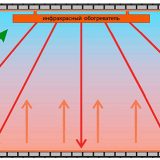 Micathermic heater: pros and cons, what it is and how it works
Micathermic heater: pros and cons, what it is and how it works  Rating of infrared heaters - top-best models of 2018-2019
Rating of infrared heaters - top-best models of 2018-2019 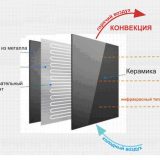 Infrared heater or quartz - which is better
Infrared heater or quartz - which is better 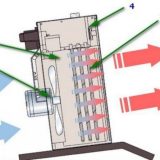 Fan heater or oil heater - which is better and more economical
Fan heater or oil heater - which is better and more economical 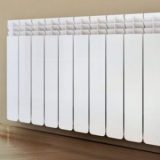 Heater or convector - which is better and what is the difference
Heater or convector - which is better and what is the difference 